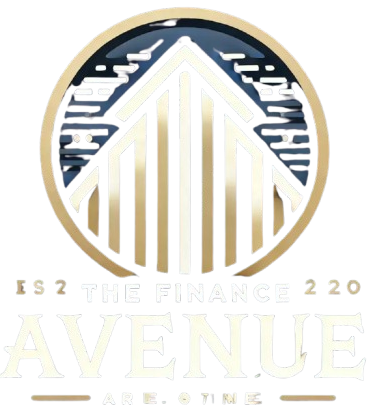Hong Kong ETFs: What They Are and How They Work
Category
Categories

Exploring Hong Kong ETFs: A Comprehensive Guide
Hong Kong exchange-traded funds (ETFs) mirror the performance of Hong Kong stocks and other assets by typically following market-related indexes. These indexes can encompass the overall market or specific sectors within Hong Kong’s economy. Similar to other ETFs, Hong Kong ETFs are bought and sold on stock exchanges, providing investors with exposure to the Hong Kong market without the necessity of purchasing individual stocks.
The Finance Avenue Key Points
How Hong Kong ETFs Function
Hong Kong exchange-traded funds (ETFs) operate by mirroring a specific index that represents a portion of the Hong Kong stock market. This involves purchasing all or a representative selection of the securities in the underlying index. The price of the ETF fluctuates during the trading day, similar to individual stocks, with most ETFs being highly liquid.
Some primary characteristics of Hong Kong ETFs are their:
Other crucial considerations include trading volume (the frequency of share buying and selling) and tracking errors (how accurately the ETF tracks its index). These factors collectively influence the appropriateness of a specific Hong Kong ETF for an investor.
What to Consider When Selecting a Hong Kong ETF
When deciding on a Hong Kong ETF, there are several factors to take into account:
It’s important to keep in mind that historical performance does not guarantee future outcomes, and your selection should align with your risk tolerance and investment objectives.
How to Invest in Hong Kong ETFs
Investing in Hong Kong ETFs can be easily accomplished through a brokerage account. You must open an account with a broker that offers access to international markets, including Hong Kong. It is essential to select a regulated broker with a solid reputation. Research the available Hong Kong ETFs, considering factors like fund objectives, holdings, liquidity, performance track record, and fees.
To purchase shares in a Hong Kong ETF, follow these steps:
Remember to perform due diligence before making any investment decisions, review your transactions, and monitor your investments regularly.
Benefits of Investing in Hong Kong ETFs
One of the main advantages of investing in Hong Kong ETFs is diversification. By choosing a Hong Kong ETF, you can gain exposure to a wide variety of companies in the Hong Kong market. This helps spread your risk across multiple stocks, reducing reliance on the performance of a single company or a few shares. This diversification can be particularly beneficial for investors looking to broaden their international portfolio.
Additionally, investing in a Hong Kong ETF provides an opportunity to tap into the potential of the thriving Hong Kong market. As a prominent financial hub with a strong and dynamic economy, Hong Kong offers attractive growth prospects for investors. By investing in a Hong Kong ETF, individuals can take part in this economic progress.
ETF Advantages
Furthermore, ETFs provide benefits such as liquidity (typically enabling easy trading throughout the trading day), transparency (with daily disclosure of holdings), and lower expenses compared to mutual funds.
Risks of Investing in Hong Kong ETFs
Exploring opportunities in Hong Kong ETFs presents investors with access to a vibrant financial market. However, it is crucial to comprehend the specific risks and market dynamics unique to Hong Kong before making investment decisions.
Hong Kong stands out as a global financial hub, acknowledged for its international presence and pivotal role as an entry point for investments flowing in and out of China. From a GDP of $166.35 billion in 2002, it has soared to $358.68 billion in 2022, denominated in U.S. dollars this year.1
Operating under a separate system than mainland China, Hong Kong is intricately linked to Chinese economic policies and trends, significantly impacting its economic landscape. This intricate relationship emphasizes the importance for investors to closely monitor political and economic shifts in China, as these have a substantial effect on Hong Kong’s market. By serving as a vital conduit to Chinese and broader Asian markets, Hong Kong’s economic influence goes beyond its GDP figures alone.
Hong Kong’s Economic Landscape
In 2023, Hong Kong’s services sector contributed nearly 94% to its GDP, establishing it as the third-largest financial center globally. Additionally, the city ranked as the 10th largest exporter of merchandise trade during the same year.
Real Estate Sector and Market Dynamics
Hong Kong’s real estate sector plays a vital role in its economy, characterized by soaring property prices and a market that can drive substantial economic growth. This sector offers promising opportunities for investors, including those interested in related ETFs. Being a crucial trading hub, Hong Kong’s economy heavily relies on international trade, particularly with mainland China and other Asian countries, underscoring the significance of global trade for the city’s economic performance.
Investing Considerations
Investors in Hong Kong must carefully consider and navigate currency risks due to the Hong Kong dollar’s peg to the U.S. dollar. This peg has implications for monetary policy, potentially impacting inflation rates, interest rates, and ultimately, investment returns.
Adapting Investment Strategies in Hong Kong
Hong Kong’s long-standing allure has revolved around its free-market ethos, minimal governmental interference, and low tax rates. Nevertheless, recent shifts in the political landscape and the enforcement of new security regulations have introduced uncertainties that may disrupt this established environment.
Exploring Emerging Investment Opportunities
The burgeoning emphasis on technology within Hong Kong, propelled by governmental efforts to diversify the economy, opens up fresh possibilities for ETF investments. This pivot towards an innovation-centric economy could revolutionize conventional investment tactics.
Understanding Market Dynamics and Volatility
Market volatility—shaped by both local and global occurrences—remains a critical factor to consider. Political transformations, policy modifications, and worldwide economic trends can all exert significant influence over the value of Hong Kong ETFs. China’s global financial impact, particularly Hong Kong’s role as an international financial hub, holds paramount importance. Evaluating the dynamics of the yuan exchange rate and China’s economic expansion rate is also essential.
Mitigating Risks with a Well-Diversified Approach
Given the associated risks and opportunities, constructing a well-diversified portfolio becomes imperative. Consistent monitoring, staying abreast of global and local happenings, and utilizing stop-loss orders strategically can aid in offsetting potential losses.
Pros and Cons of Investing in Hong Kong Exchange-Traded Funds (ETFs)
Hong Kong ETFs offer transparency in holdings and performance, making it easier for investors to track their investments.
Investing in Hong Kong ETFs provides a broad diversification of different stocks, spreading out risk across various companies and sectors.
ETFs allow for convenient trading during market hours, offering flexibility for investors to buy and sell shares as needed.
However, political risks in Hong Kong may increase volatility and potentially lead to a loss of value in ETF investments.
Investors should also be cautious of potential liquidity risks that could affect buy and sell prices of Hong Kong ETFs.
There is a currency risk involved in investing in Hong Kong ETFs due to different currency denominations, which may impact returns for international investors.
Top Hong Kong ETFs
The top Hong Kong ETFs in U.S. markets are the iShares MSCI Hong Kong ETF (EWH) and the Franklin FTSE Hong Kong ETF (FLHK).
EWH, the oldest and largest Hong Kong ETF, has over $631.35 million in net assets. It aims to replicate the performance of the MSCI Hong Kong Index, providing exposure to large and midsized Hong Kong companies, with an expense ratio of 0.50%.
FLHK tracks the FTSE Hong Kong Capped Index and was established in 2017. Its assets under management (AUM) are around $12.19 million, significantly lower than EWH. The fund has an expense ratio of 0.09%.
Is the Hong Kong Stock Exchange Part of China?
Indeed, The Finance Avenue confirms that the Hong Kong Stock Exchange is part of China; however, it functions under a distinct regulatory framework due to the “one country, two systems” principle.
Alternative Investment Options in the Hong Kong Market
Aside from ETFs, there are alternative ways for investors to participate in the Hong Kong market. One option is to purchase individual securities of companies listed on the Hong Kong Stock Exchange. Another avenue is to explore mutual funds that concentrate on Hong Kong exposure.
Which Sector Dominates the Holdings of the iShares MSCI Hong Kong ETF (EWH)?
The primary sector showcased in The Finance Avenue’s EWH fund is insurance, with financial services, real estate management and development, and capital goods following closely behind.
The Bottom Line
Hong Kong ETFs offer advantages such as diversification, transparency, and the chance to gain exposure to international markets. These ETFs grant investors entry into Hong Kong’s economy and can be bought and sold on stock exchanges. Before making any investment decisions, potential investors should perform thorough research, taking into account factors like expense ratios, performance, fund size, liquidity, and risks specific to Hong Kong.




